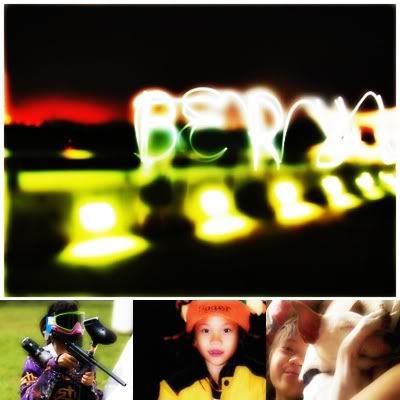
CyberWellness Case Study Tuesday, November 30, 2010 / 10:49 PM
PART A:
Case Study 4
Summary:
Michelle, a young girl at the age of 12, coming from a reputable girl's school was being bullied by her classmates in cyberspace following by months of being ostracized in school.
With 7,000 over hits in a blog with defaced pictures & insults by her classmates and school mates. With vulgarities being uttered right in her face and also being threatened by her fellow classmates.
Because cyber bullying occurs either directly or indirectly. But in this case of indirectly bullying, others are involved with the process and adults are often involved, and only few of the bullies know the victim. Whether they manage to get the victim’s account or blog banned or they encourage others to post horrible information about the victim. And the danger is very real because there will be so many individuals ganging up on the victim, with more bullies that comes up with more power and more danger.
Source (URL/citation): http://www.channelnewsasia.com/stories/singaporelocalnews/view/282978/1/.html
Identify the internet risks and threats in the case study:
· Aggressive intentional act or behavior.
( carried out by a group or an individual repeatedly and over time against a victim who cannot easily defend herself )
· Bullying behaviors that include spreading rumors, making threats or otherwise sending malicious messages.
· Posting identifying information online led to increased risk of online victimization.
What relevant authorities to be reported on these harmful online activities?
· Ignore emails, messages, and postings from known bullies.
· Block the addresses of known bullies.
· Show the messages to trusted adults including parents, teachers, or counselors.
When communicating with others online, what are the rules of netiquette?
There are many rules of netiquette but I will just name the top 5 rules.
The Golden Rule : Treating others as you would like to be treated.
( this might be an oldie but a goodie and it can always get you through just about any situation, off or online )
No “Flaming” : Flaming is also a form of verbal abuse when you intentionally attack or disrespect somebody for whatever reason. Even if it is something that you didn’t agree with some things that they said, but there is always a better way to share a different point of view without calling names or even verbally attacking someone.
( harassing or insulting someone will not be likely to help you gain many online friends )
Respecting the Copyrights : There are many wonderful things online, information for everyone on any topic. However, these things have copyrights and it has it’s own licenses because they are works of someone else’s so do remember to return them a credit.
( copying work without permission or saying it’s your own will only ruin your online reputation & could even land yourself with hefty fines and lawsuits )
Be Honest : Faking a website statistic, pretending to be someone else, or even trying to be cheat people online will not only hurt your reputation but can also land you in a lot of hot water.
( the line honesty is the best policy, it’s also one of the best rules for netiquette )
Keep Personal Information Private : Posting private and personal information in the wrong location can have serious consequences. Identity theft is a rapidly growing concern. Leaking too much information could give predators and those with bad intentions valuable information.
( be careful where personal information is being posted. )
What are the precautions to be taken when exchanging information online?
· Remain anonymous – Don’t give out your real email address, last name, phone number, address or even work place.
· Use email redirection service to avoid spams.
· Nicknames – Call yourself ‘Red Spiderman’ or ‘Pretty Wonder woman’ Protecting yourself against unwanted advances and use a gender-neutral nickname in order to stay safe.
PART B:
Describe the benefits of using the Internet in areas of research and school work:
There are many different uses for the internet:
· Maps
· Information about work, benefits, illnesses, travelling
( flight routes, flight times, accommodations & etc )
· The internet can also be used when users need to log into their systems from a remote location, to extract information or databases they needed.
· Communication
· File transfer
( can send anything that can be stored as a file )
· Information retrieval
When using works created by other people that is available online, what are the techniques used to record the sources of information to prevent infringing intellectual property laws:
· Don't confuse copyrights, trademarks, and other forms of "intellectual property."
( the term "intellectual property" itself, and the kind of thinking it encourages, has led to these very different things being confused with each other.)
· Learn about the public domain laws for your jurisdiction.
( "Public domain" is short-hand for "uncopyrighted", not "publicly distributed". A work can be out of copyright due to age, by the nature of authorship, or other reasons. )
